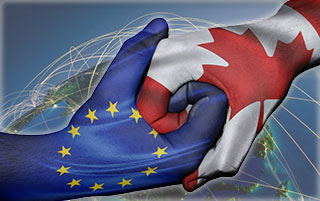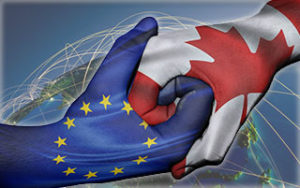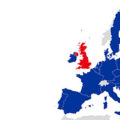A free trade agreement between the EU and Canada has slipped beneath the radar on many news outlets. The Comprehensive Economic and Trade Agreement which was finalized under Canada’s previous government is now facing a roadblock in the southern Belgian region of Wallonia. If the Walloons do not approve the deal, Belgium will not be able to ratify it, stripping it of the 28 nation consensus needed to come into effect. Wallonia’s rejection of the deal has many repercussions for both the EU and Canada, but it mostly shows that the kind of protectionist sentiment seen during the Brexit referendum, is spreading to other places in Europe pretty quickly.
For some, Wallonia’s reluctance to accept one of the fairest most progressive trade deals with a like-minded Western country, proves that Britain had a point when it comes to membership in the EU. Partnership in the EU means giving up sovereignty, but the Walloons have proven that it may also mean subjecting national economic interests to a regional minority in a foreign country.
Therefore the consequences of the CETA debacle are manifold. Not only did 3.5 million Walloons succeed in denying 35 million Canadians and 500 million EU citizens, the benefits of a great deal. They also succeeded in justifying Britain’s exit from the EU, strengthening the will of other countries that might wish to go down the same road. Additionally their opposition effectively scuttled other potential EU deals with Japan and the US, leaving Europe stuck in the international commerce version of no man’s land.
It seems that this vote could also reinforce the trend of receding international trade. A shift towards protectionism will become a more prominent feature not only in terms of electoral slogans, but surely in deed as well. In such an environment, Brexit could have actually given Britain an advantage, since bigger economies tend to benefit more from protectionism, and the British economy is the fifth biggest in the world.
Should the world manage to halt protectionist tides, then Britain with its newfound freedom to enter into trade agreements as it pleases, could well succeed where the EU failed. A trade agreement between Britain and Canada – drawing upon CETA’s basic elements – is now more likely. If Britain manages to bring both New Zealand and Australia and make it a 4 nation deal, then it could gain a foothold in other markets and give the commonwealth a new significance.
In the meantime Canada, the EU, Britain and every other country interested in a trade deal with the EU will be watching how the CETA crisis develops. If by any chance the EU manages to convince the Walloons, then Britain would have a relatively weaker position to strike a separate deal with its former colony. If the situation cannot be solved, then following the completion of Brexit negotiations, Britain will be in a better position than the EU to navigate the complexities of international commerce.







